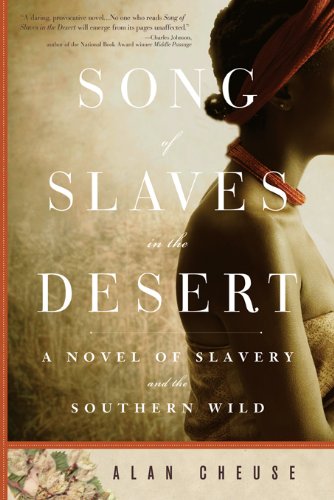Song of Slaves in the Desert
It’s hard to imagine that descendants of slaves from Egypt and Babylon, Jews who struggled to break the chains of bondage, would one day forget their ancestors’ struggle for freedom. Whether they forgot the past, or felt justified that owning slaves was an economic necessity, they did indeed trade in and purchase human flesh. The slaves of the past who broke through the chains now held the key to their own shackled servants.
Jonathan Pereira is a descendant of these freed people. He is the son of a plantation owner, and he awaits the arrival of his cousin Nathaniel. The cousins share a heritage, but having grown up in the North, their philosophical views on slavery are in opposition. The son of a merchant, Nathaniel has been sent to Charleston by his father to glean information and learn whether investing in his uncle’s operation would be a viable investment.
This complex multigenerational story of slavery begins in 1500 and takes the reader up to the Civil War. The slaves who work the plantation are the descendants of slaves from Timbuktu who were captured and brought to America via the Middle Passage, barely surviving the wretched inhuman conditions of the journey.
The author gains voice through the eyes of Nathaniel and the son of the slave Eliza. In her eyes “without love you cannot be free, without freedom you cannot love.” Even the slave master, Jonathan’s father, believes that “freedom comes to those who take it, never to those who lie back and wait for it.” Nathaniel comes to understand that freedom is not a commodity that can be bought.
This is a brilliantly imagined story that will take the reader on a fascinating, meandering journey that leads to a confluence of two families from different cultures and religions, both experiencing bondage, determined to be free. Songs of Slaves in the Desert is an intoxicating piece of literature destined to achieve well-deserved acclaim.










